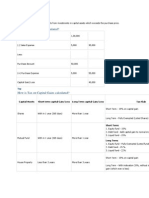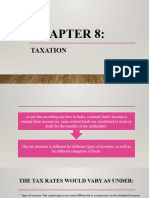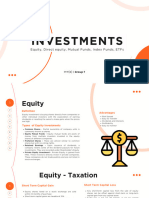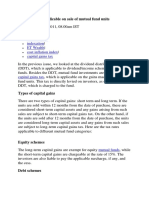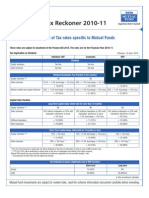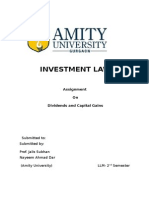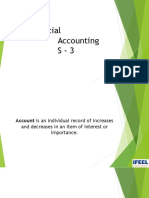0% found this document useful (0 votes)
24 views12 pagesChapter 08
The document provides an overview of taxation related to mutual funds in India, highlighting the importance of understanding tax implications on investment returns. It details the taxation of income earned by mutual funds, capital gains, and the recent changes in dividend taxation, as well as the specifics of Equity Linked Savings Schemes (ELSS) and their tax benefits. Additionally, it covers the applicability of Securities Transaction Tax (STT), Tax Deducted at Source (TDS), and the investment options available for Non-Resident Indians (NRIs).
Uploaded by
Mithali LadCopyright
© © All Rights Reserved
We take content rights seriously. If you suspect this is your content, claim it here.
Available Formats
Download as PDF, TXT or read online on Scribd
0% found this document useful (0 votes)
24 views12 pagesChapter 08
The document provides an overview of taxation related to mutual funds in India, highlighting the importance of understanding tax implications on investment returns. It details the taxation of income earned by mutual funds, capital gains, and the recent changes in dividend taxation, as well as the specifics of Equity Linked Savings Schemes (ELSS) and their tax benefits. Additionally, it covers the applicability of Securities Transaction Tax (STT), Tax Deducted at Source (TDS), and the investment options available for Non-Resident Indians (NRIs).
Uploaded by
Mithali LadCopyright
© © All Rights Reserved
We take content rights seriously. If you suspect this is your content, claim it here.
Available Formats
Download as PDF, TXT or read online on Scribd
/ 12





